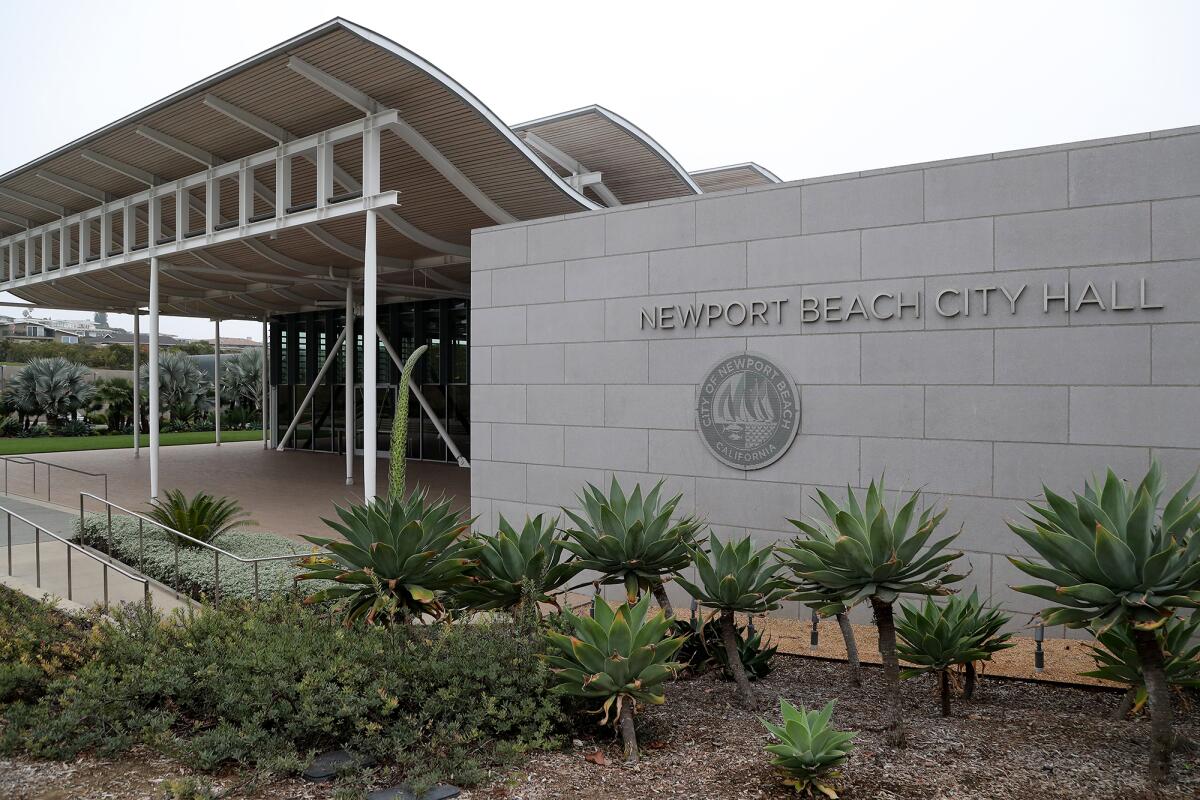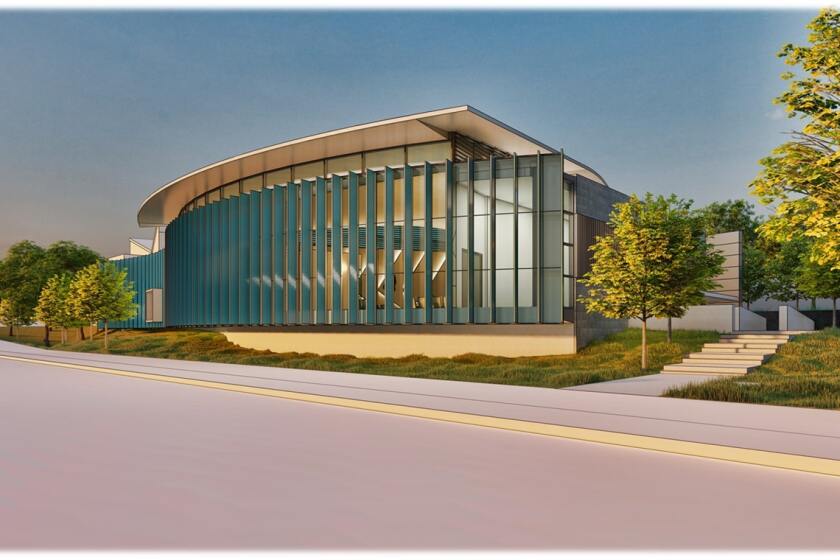Newport Beach City Council studies pilot program to allow security cameras in public right-of-way

It may soon be possible for some local homeowner associations to install security cameras in Newport Beach’s public right-of-way, depending on the outcome of a pilot program the City Council provided direction for during a study session Tuesday.
Existing council policy states that public right-of-way is reserved only for public uses, which cannot be diminished by private improvements, though there are exceptions that may be granted for fences, parkway resurfacing, raised planters and other items. But the policy does not provide guidance on security cameras that would serve private properties.
This week’s study session came about after Mayor Pro Tem Will O’Neill was contacted by the Spyglass Hill Community Assn., which is seeking to install cameras near entrances to the neighborhood.
Residents from Spyglass Hill appeared at Tuesday’s study session to speak on the matter, with Spyglass Hill Community Assn. President Bruce Horn saying the community wants security cameras to deter crime. The association is seeking permission to install eight cameras.
Public Works Director Dave Webb said the Spyglass Hill request to use public right-of-way for security cameras is currently the only one under consideration. The city has received similar requests over the years, though those largely ended with cameras being placed on private property. With the exception of one camera that is operated under a license agreement, Spyglass Hill would be the first homeowner’s association allowed to install them in the right-of-way, Webb said.
The Newport Beach City Council and the Newport Beach Public Library Foundation signed a memorandum in December 2021, stating that the two entities would share the cost of Witte Hall. But the lowest bid to build the project came in more than $3 million above projections.
Webb said there are 61 non-gated residential communities with more than 50 residents and 21 non-gated communities with fewer than 50 residents.
City staff sought council direction on a number of considerations involved with the potential program, including who would give the approvals, permitting fees, license agreements, community aesthetics and privacy.
Police Chief Joe Cartwright said a number of cities have tried similar programs and the implementation of security cameras has been useful. He said it would be helpful to have cameras at intersections to track those coming in and out.
“We talked about trying to work through maybe a test case. It doesn’t have to obviously be just Spyglass Hill; it’s just that when they came forward to talk about this, it made sense to at least talk to them in particular about trying to be a test case,” O’Neill said. “But in order to get those cameras in properly, they would have to be in the public right-of-way. The question is what do they look like?
“Does the program work? And given that we really haven’t done this much around town, we are going to be talking about whether the city should be doing this as well [after an ad hoc advisory committee on residential crime and burglary returns with recommendations], it made a lot of sense for us to come and talk about this.”
O’Neill said he would prefer to modify council policy to allow for city staff to give approvals and wanted to limit the trial phase to maybe five or 10 homeowners associations, with some geographical diversity. He said that, as part of license agreements, he wanted to explicitly prohibit facial recognition. Nominal fees may be associated with the pilot program, though what the actual fees may look like will be determined later.
Mayor Noah Blom suggested an initial term of a year.
Council members were generally supportive of the idea, though they raised concerns about accessibility to video for police, privacy and whether or not any recorded data would be considered part of the city’s obligation to respond to public records requests. City Atty. Aaron Harp said the city would not be held responsible for providing data as it would not be maintained or controlled by the city itself.
City spokesman John Pope said the city is looking to implement the pilot program by early summer.
All the latest on Orange County from Orange County.
Get our free TimesOC newsletter.
You may occasionally receive promotional content from the Daily Pilot.





